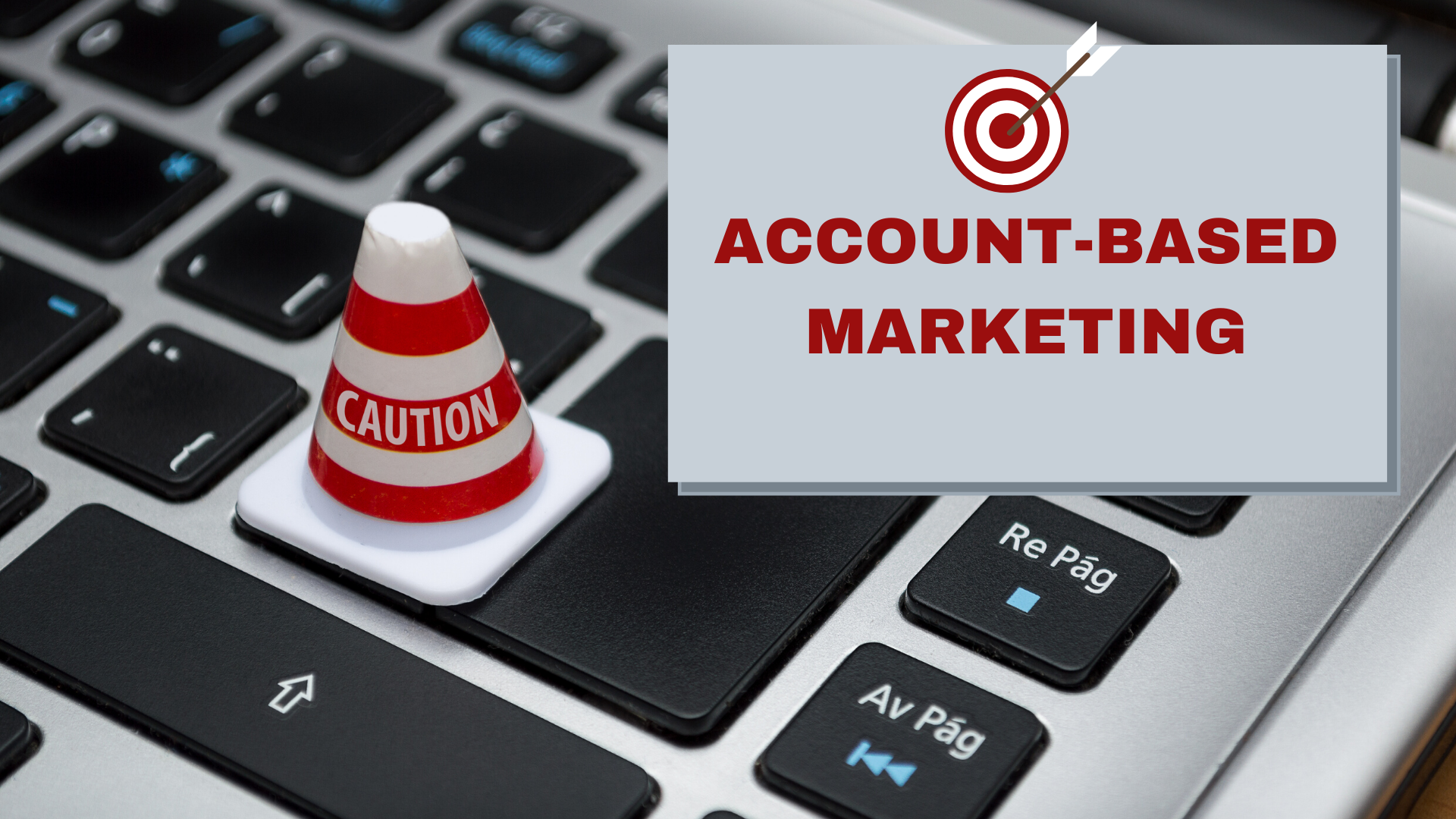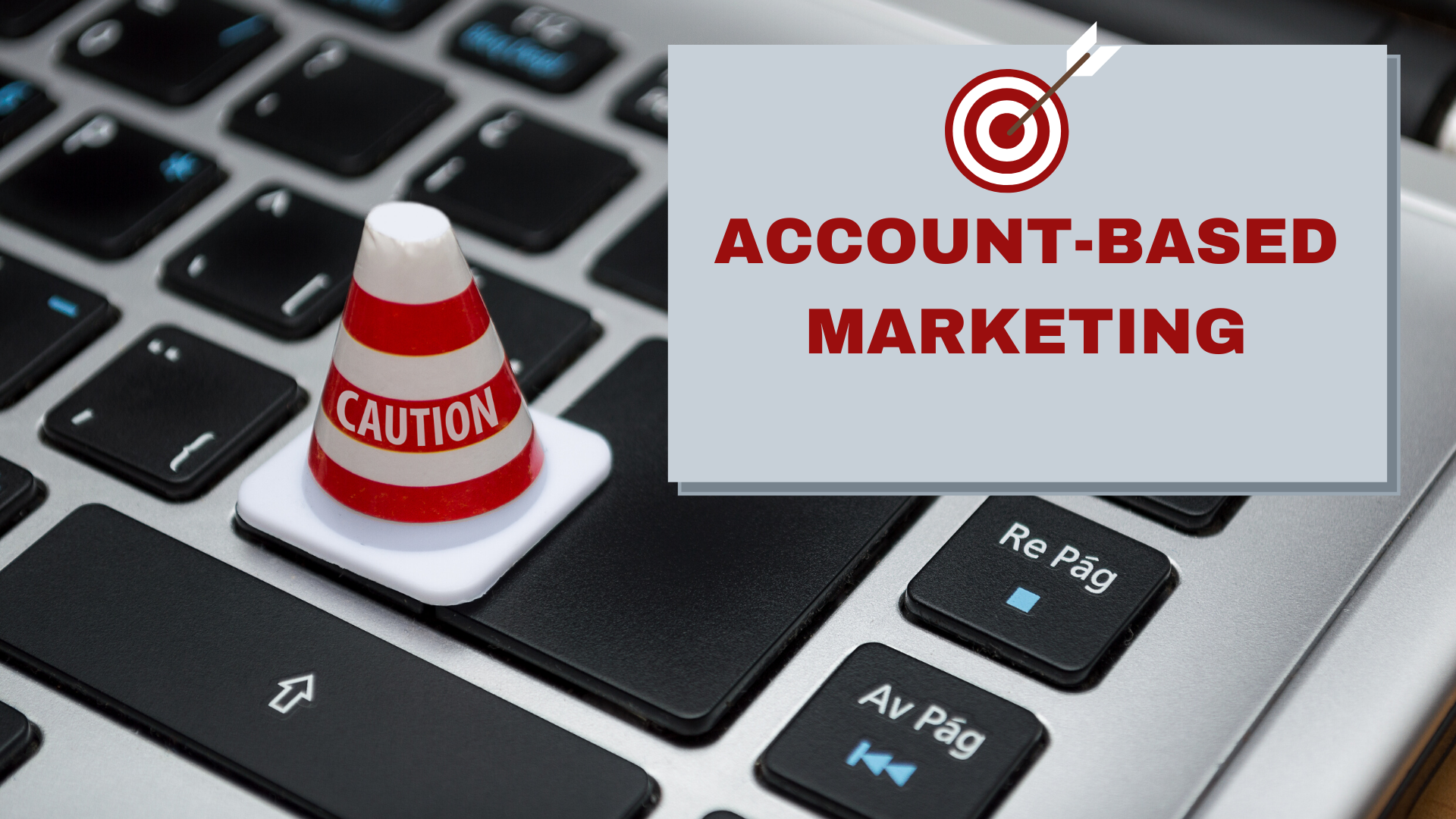
ABM Marketing isn’t for everyone.
But… if you work for a B2B business, chances are pretty good that you’ve practiced account-based marketing without even knowing it.
B2B companies naturally target and sell to narrow lists of prospects. They do this using a combination of outbound, inbound, and account-based marketing strategies so their business thrives.
So, what exactly is ABM marketing? Well, account-based marketing is a B2B strategy that funnels its sales and marketing resources to a small number of target accounts within a market using personalized campaigns for each account.
Account-based marketing is great for B2B businesses because it offers a clear ROI, it’s very personalized, and it’s easier to manage since it requires fewer campaigns. Here are 3 real-life ABM examples you can check out.
So, everyone should use ABM, right?
Not exactly. While ABM is an effective marketing strategy used throughout the business world, it’s not always the best option.
In this article, we’ll take you through 5 questions to determine who should and shouldn’t use ABM marketing.

1. Do your new customers bring in substantial revenue?
ABM marketing works best when you have a few clients that contribute greatly to your revenue goals.
If you have a $5 million-dollar goal for a new business target and each new customer contributes $500,000 to $1 million per year, then ABM is probably right for you.
However, if your goal is $5 million but each new customer might contribute $500-$5,000, then you’re better off using a different marketing strategy.
It’s crucial that your ROI for an account-based marketing strategy adds up. ABM marketing requires heavy investments into personalized campaigns for each account. This means your content creation, outreach, and sales initiatives are custom-tailored to your accounts.
You need to ensure that reeling in new customers is worth the time and money you put into them.

2. Are your customers already searching for you?
If your target customers aren’t aware of your company or your products, then ABM might be a good idea for you. The fact is, if your prospects aren’t searching for you, you’ll need to let them know you exist.
ABM shines when you can identify your prospective customers, get them to connect with you, and if you can share a message relevant enough so they engage with you. When your prospect begins considering your solutions, your sales reps now have an opportunity to jump into the equation.
On the other hand, if you already have a huge portion of customers searching for your business, products, and content, ABM might not be best for you. You’re probably better off investing in where you’re already being found.
For example, if prospects are actively finding you through search engines, social media, or other purchasing circles, you should continue focusing on these channels.

3. Do you know (or can you target) the companies that would buy your offer?
Do you already know who you want to do business with? This is one of the easiest ways to figure out if account-based marketing is right for you.
If you know the companies that would benefit from your product or service, then you should take the time to target them. Rather than waiting for them to find you, be proactive.
If you already have a relationship with them, feed it. Craft your marketing around them. If you don’t know them yet, begin targeting the companies you’d want to do business with.

4. Do you know (or can you target) specific decision-makers in these companies?
If you know exactly what companies you want to do business with, then it’s time to reach out to the person of power. It’s time to focus on specific decision-makers within the company.
If you already know them, then it’s time to hone in on that relationship. However, if you don’t know who the decision-makers are yet, then you’ll want to begin targeting them.
ABM is really just people doing business with other people. At the end of the day, it’s more focused on the individual marketing strategy rather than a company marketing strategy. Focus on the individuals in your target company who make purchasing decisions or who influence those decisions.

According to research by Harvard Business Review, an average of 5 people have to formally sign off on a purchase.
Making matters even more complicated, the research found that the individuals representing these companies have a growing variety of jobs, functions, and geographies.
The best ABM strategy involves identifying every person involved in the decision-making process, crafting messaging for them, delivering content relative to their role, and encouraging them to engage with your sales reps.
This is the heart of ABM. It’s all about orchestrating the identification, outreach, and engagement with decision-makers.
If you’re unable to target decision-makers, then ABM will be impossible.
5. Do you have relevant, personalized messaging to offer the decision-makers?
Targeting your ideal company and decision-makers is one part of the equation. Effective messaging is the other.
Have you ever received boring, “who cares” emails from people or companies you don’t know?
Most people have. The fact is, you can’t just send a typical email asking your prospect to buy, or even for an appointment. You can’t just ask for them to request a product demo. If they don’t know you or your company, they won’t know they need you.

You need to craft emotional messaging that appeals to them. Always remember the WIIFM rule, or ‘What’s in It for Me?’
While creating your messaging, always try to get inside your prospect’s mind. Why would they want to read your email? How will you make their life easier? How will you improve their life? If you don’t tap into this, your email will be added to the delete pile with the rest of them.
Remember to always provide value to your target audience in every conversation. Keep your target engaged, informed, entertained. And always stay relevant. The more you understand your target, the better you’ll understand how to craft messages they find interesting or important.

Need Help with ABM Marketing?
If you’ve answered the questions with a resounding “yes”, then ABM is probably your best bet.
But… ABM marketing isn’t for everyone.
Typically, non-B2B, non-enterprise, and companies with limited resources should look into different strategies.

Build a smart account-based marketing approach by partnering with us at Rizen today. We're an experienced, friendly, results-driven marketing firm that can help grow your business. Just ask our happy clients!
Learn more about our organization, and contact us to begin a no-pressure conversation. We can't wait to hear from you!








No Comments Yet
Let us know what you think